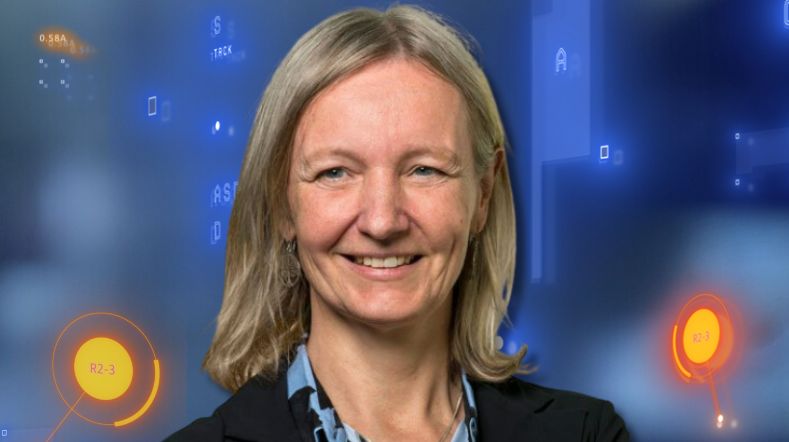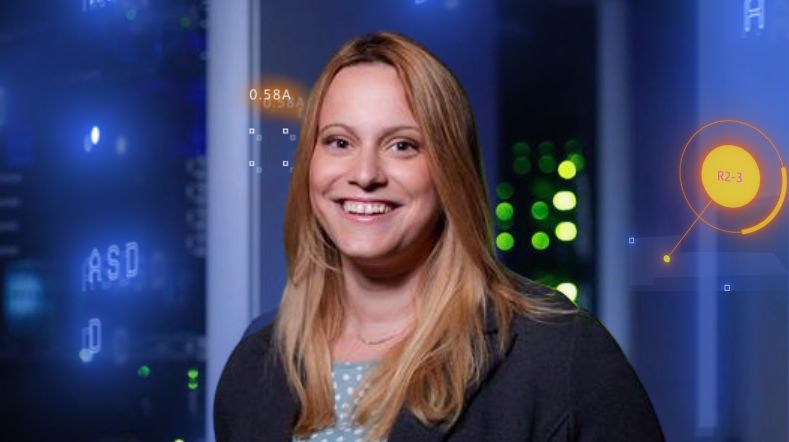Data science
Our Data Science expertise group wants to give insight into data and make it meaningful. And it wants to do this in a comprehensible and responsible way. We help companies and public authorities share and manage their data securely. And to use the data to make better decisions, from a social as well as a business perspective. Discover what we do.
World overlaid with a thin layer of data
You can’t see it, but the world is covered by a wafer-thin layer of data. The temperature of the air, the age of your neighbour, the balance in your bank account. Our smartphones, laptops, smart watches, and other devices provide us with all these data whenever we want them. These devices can do a lot with data, but there’s still a lot they can’t do – or can’t yet do in a good and proper way.
For example, it isn’t always clear on the basis of what data a decision (possibly an automated decision) has been made. And this decision can have a great impact on people’s lives. For example, it may determine whether or not you’ll be invited for a job interview. When questionable use of data leads to an invasion of privacy, we realise how dependent and vulnerable we are. Especially when personal data are suddenly out in the open. With growing technological possibilities, the use of unexplainable systems is also increasing. Systems that seem to think and decide autonomously.
The huge amounts of data produced are helpful to us – so much so that we can hardly live without all the information. But it’s so extensive that we sometimes risk losing control of it. The importance of handling data properly and giving it the right meaning will therefore only increase.
What does the Data Science expertise group do?
We work on solutions that enrich information systems and artificial intelligence (AI) with human knowledge and experience. In this way, we help devise and build meaningful, reliable, and explainable solutions for data sharing and data analysis.
One method is to use natural language to enable data exchange. Or we can enable AI systems to learn from human knowledge and to use context awareness in reasoning. We call the combination of data-driven and knowledge-driven AI ‘Hybrid AI’.
More data also makes privacy and data security extremely important. The impact on policy and legislation is also growing. We therefore work closely with colleagues who develop information security and privacy-enhancing technologies.
We bring all these solutions to the market as prototypes, both for government and industry.
Our knowledge areas
The Data Science department consists of 3 knowledge areas. Each covers different aspects of data sharing and data analysis:
This knowledge area focuses on making data analysis methods based on artificial intelligence trustworthy and transparent. For example, we use the results of data analysis to support decision-making in operational situations.
We build automatic reasoning technologies that infer relationships in mainly textual data and explain analysis results to people. In this work, we develop artificial intelligence that communicates with people in a natural and comprehensible way, for example through natural language. We also develop methods to automatically determine the validity and trustworthiness of data-driven decision support.
Techniques and methods we use are Natural Language Processing, Communicative AI, and Hybrid AI. We apply this knowledge in the fields of health, government, and security and defence.
In this knowledge area, we work on ways of dealing responsibly with data and data analysis. A lot of data contain business-sensitive information, for example. We therefore develop solutions with a privacy-friendly design. These enable data to be analysed without disclosing the content of sensitive data. Or we create synthetic data that no longer have sensitive content. We make the analysis transparent and give the owner or user control over the privacy settings. Among other things, we use analysis methods with encryption forms, also known as Privacy Enhancing AI.
AI systems are trained by people, and people have unconscious bias. For example, in job interviews, recruiters will unconsciously tend to choose candidates who look like them. For this reason, we’re working on AI systems that will eliminate these prejudices as far as possible.
We’re currently applying this knowledge mainly for government, healthcare, and in the security and defence sector. In this field of expertise, we collaborate with strategic partners such as the Employee Insurance Agency (UWV), the Leiden Institute of Advanced Computer Science (LIACS), encryption experts (the Dutch national research institute for mathematics and computer science, CWI), and European research consortia.
This knowledge area focuses on interpreting and sharing data in a way that is structured, comprehensible, unambiguous, and meaningful for people, organisations, and machines. We develop solutions for efficiently sharing meaningful digital information, in industrial and commercial sectors. In this way, we help parties enter into established and new forms of collaboration with the help of information in a changeable world.
Knowledge-based AI specialises in:
- Representing and modelling knowledge, reasoning mechanisms, and norm engineering using semantics and ontologies
- Standardising vocabularies and data models
- Interoperability architectures to share knowledge
- Evolution of knowledge models.
Domains in which we now apply this knowledge include greenhouse construction, agrifood, smart industry, government, the energy sector, and business services. For example, we’re developing a knowledge model and an interoperable platform in the energy sector that will seamlessly connect devices in the home environment from different suppliers, buildings, and grids.
Want to know more?
Are you keen to gain more insight into your data? Make AI systems more trustworthy or comprehensible? Or would you like to discuss with us how to organise your information sharing in a meaningful way? Then please feel free to contact us.
Get inspired
Digitalisation and sustainability: how AI can help


Time setter story: Kallol Das


Digital Product Passport


Time setter story: Annemieke Kips


Time setter story: Belma Turkovic



